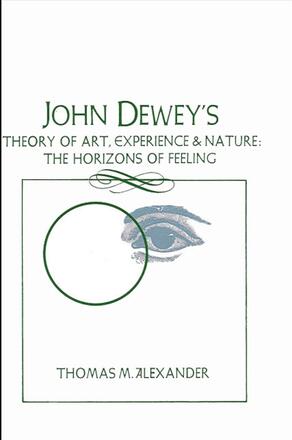
John Dewey's Theory of Art, Experience, and Nature
The Horizons of Feeling
Alternative formats available from:
Description
Thomas Alexander shows that the primary, guiding concern of Dewey's philosophy is his theory of aesthetic experience. He directly challenges those critics, most notably Stephen Pepper and Benedetto Croce, who argued that this area is the least consistent part of Dewey's thought.
The author demonstrates that the fundamental concept in Dewey's system is that of "experience" and that paradigmatic treatment of experience is to be found in Dewey's analysis of aesthetics and art. The confusions resulting from the neglect of this orientation have led to prolonged misunderstandings, eventual neglect, and unwarranted popularity for ideas at odds with the genuine thrust of Dewey's philosophical concerns. By exposing the underlying aesthetic foundations of Dewey's philosophy, Alexander aims to rectify many of these errors, generating a fruitful new interest in Dewey.
Thomas M. Alexander is Assistant Professor of Philosophy at Southern Illinois University at Carbondale.
Reviews
"This book puts Dewey's aesthetics and his general philosophical position in a refreshing perspective. It sustains a sensitive account of Dewey's conception of meaning and shows how some critics of the relation of aesthetics to the whole of his philosophy have overlooked the way aesthetic meaning was central to Dewey's thought before and after he distanced himself from idealism. The author knows his way inside Dewey's philosophy, and he has done an excellent job of explaining Dewey. " — Carl R. Hausman
"This is a highly detailed, sophisticated monograph on Dewey's aesthetics. More specifically it aims to investigate the criticism against Dewey levelled by Pepper and Croce that Dewey's aesthetic theory was idealistic and therefore in contradiction with his naturalistic metaphysics of pragmatism. Alexander defends Dewey against the charge, and in the process provides an extraordinarily subtle and thorough analysis of Dewey's development from idealism to pragmatism. " — Robert Cummings Neville